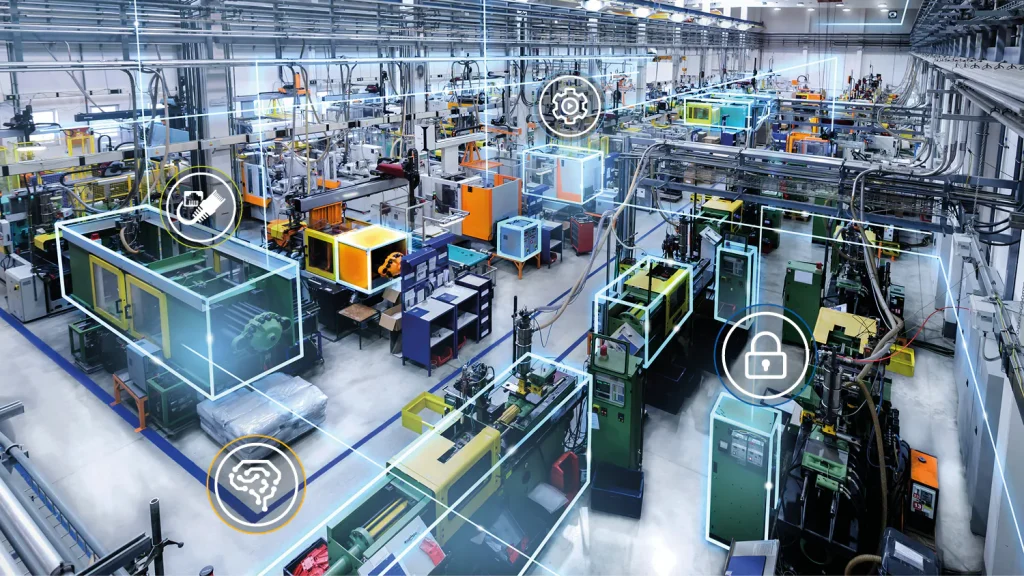
In today’s fast-paced industrial landscape, where efficiency, accuracy, and cost-effectiveness are paramount, the integration of automation in data collection has emerged as a game-changer for factories and industries. As a forward-thinking organization, Nakshatra Automation is committed to revolutionizing how industries gather and utilize data. Let us explore how automation eliminates the dependency on the workforce for data collection, minimizes the impact of human error, and generates remarkable returns on investment (ROI).
The Challenge of Manual Data Collection
Traditionally, factories and industries have relied on manual processes for data collection, wherein employees record, analyze, and report operational metrics. While this approach may seem straightforward, it is fraught with challenges that can hinder an organization’s growth, including:
Human Error: Manual data collection is inherently prone to mistakes. Data entry errors, misinterpretation of values, and omission of critical information are common issues, leading to inaccurate reporting and decision-making.
Time-Intensive Processes: Recording data manually is time-consuming, leading to delays in analysis and response. Such inefficiencies can cause operational bottlenecks and impact production timelines.
Increased Labor Costs: Employing a workforce solely for data recording and analysis adds to labour expenses without directly contributing to the organization’s core activities.
Automating Data Collection: A Paradigm Shift
By leveraging cutting-edge automation solutions, Nakshatra Automation empowers factories and industries to transition to a seamless, efficient, and error-free data collection process.
Automation enables:
- Real-Time Data Acquisition: Automated systems equipped with sensors, IoT devices, and software solutions can continuously monitor and record critical parameters such as temperature, pressure, production output, and equipment performance in real time.
- Enhanced Accuracy and Reliability: Automation eliminates the risk of human error, ensuring that the data collected is accurate and consistent. This precision enables better analysis and informed decision-making.
- Cost Savings: Automation significantly lowers labour costs by reducing dependency on manpower. Resources can be redirected toward value-added tasks, such as improving production processes or innovating new products.
- Scalability and Flexibility: Automated systems can handle vast amounts of data and adapt to changes in operational requirements, making them ideal for industries of all sizes.
- Streamlined Compliance: Automated data collection facilitates seamless documentation, ensuring that industries comply with regulatory standards without the hassle of manual reporting.
The Impact of Human Error: A Hidden Cost
Human error in manual data collection is not just a trivial inconvenience; it has far-reaching consequences:
Financial Losses: Errors in recorded data can lead to incorrect forecasts, overproduction, or resource wastage, resulting in financial losses.
Operational Downtime: Incorrect data can delay identifying issues or inefficiencies, leading to unplanned downtime and reduced productivity.
Safety Risks: In industries dealing with hazardous materials or equipment, inaccurate data can compromise safety protocols, putting workers and operations at risk.
Automating data collection addresses these challenges by ensuring that data is error-free and available for immediate analysis.
Return on Investment (ROI): The Compelling Case for Automation
Investing in automation technology is not merely an expense but a strategic decision that delivers significant ROI. Consider the following benefits:
Cost Efficiency: While the initial investment in automation technology may seem substantial, the long-term savings on labour costs, reduced errors, and improved efficiency outweigh the expenditure.
Increased Productivity: Automation accelerates data collection and analysis, enabling faster decision-making and enhancing overall operational efficiency.
Improved Profit Margins: Industries can achieve higher profit margins by minimizing errors, reducing wastage, and optimizing production processes.
Future-Readiness: Automation positions industries to stay competitive in an increasingly digitized world, ensuring they are equipped to tackle future challenges.
Conclusion
Through factory automation, Nakshatra Automation is spearheading a transformation that redefines how factories and industries collect and utilize data. By eliminating manual processes, mitigating human error, and delivering outstanding ROI, automation empowers industries to operate efficiently and accurately.
Investing in automation is not just a technological upgrade but a commitment to innovation, growth, and sustainability. Let us create a smarter, more efficient industrial future together.
